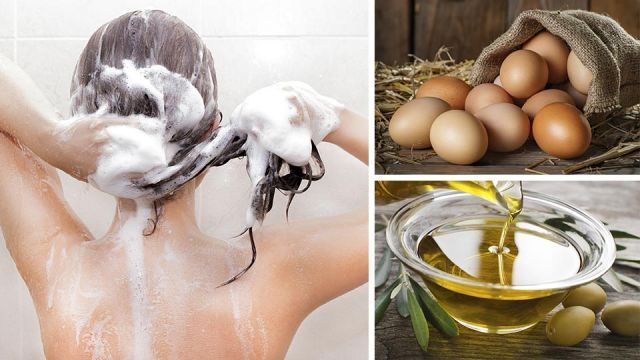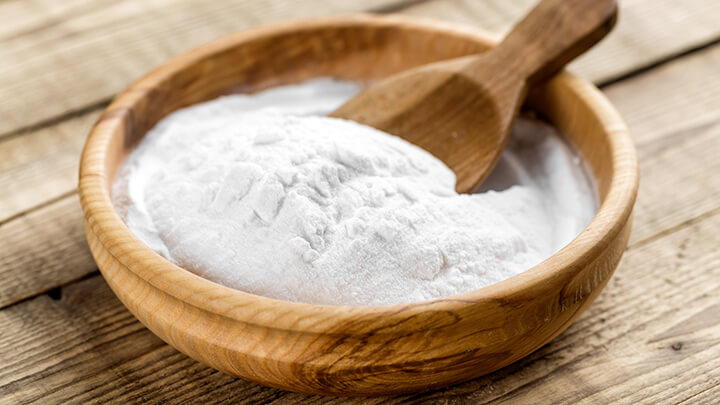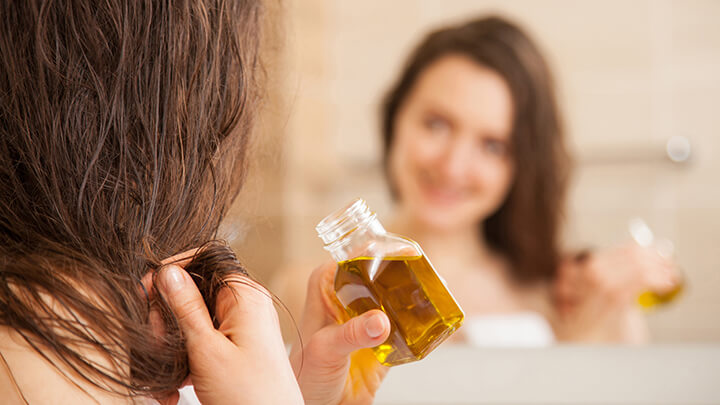
If you’re anything like me, you’ve got a soft spot for the shower. If I’m honest, it’s slightly addictive — I’ll step inside, intending to have a quick five-minute rinse, covering just the basics… then 15 minutes later I’m wondering where the time went. There’s just something about that gloriously hot water cascading over face and body that washes not only the physical grime away, but all the worries and regrets of the world outside.
And then there’s my hair. I’ll spend a sizable portion of the shower just running my hands through it and allowing the water to work on my wondrous wavy locks. To kick things up a notch, I’ll occasionally pop open a bottle of shampoo followed by a silky smooth squirt of conditioner, and give my hair the spa treatment it deserves.
And that’s where it all starts going downhill.
You see, conventional shampoos and conditioners are designed for show. They’re all about the razzle dazzle, rather than the nurturing. These “hair care” products are engineered to lather up and leave your hair feeling clean at the end of the shower. The thing is, “clean” is not necessarily good when it comes to your hair, and there’s certainly no need to get all sudsy up there — that’s just pure attention seeking nonsense.
Here are the many nasties found in conventional shampoos and conditioners:
Shampoo
Shampoo takes the prize for the single most poisonous thing you put on your hair (and skin) in the shower. Most conventional shampoos contain:
- surfactants, which are put in your bottle of shampoo to make it lather up nicely and make you think it’s doing a good job. Surfactants can cause irritation to your scalp and make their way into waterways, where they harm aquatic life.
- fragrances, which I’m always on high alert for. Just as in nasty air fresheners and other cleaning products, 99.9 percent of fragrances are composed of chemicals like phthalates, which seriously harm your reproductive capacity and even effect a developing human fetus.
- preservatives, which ensure the shelf life of your ‘poo is almost infinite. These ingredients are a potent concoction of synthetic compounds designed to prevent the growth of microorganisms, but in so doing they can also present various toxicity problems for both you and the environment.
Conditioner
Conditioners contain very similar harmful ingredients to shampoo — phthalates, parabens, surfactants… that kind of thing. But as the toxic icing on the cake, they also contain emulsifiers, which prevent the water and oil components in conditioners from separating. These compounds, such as siloxanes, can be incredibly harmful to aquatic life as they are very difficult to break down, meaning they can remain in natural water bodies for years.
Good things to put on your hair every time you shower
Now that you know what not to put on your hair, here are some of the things that are definitely good to put on your hair every time you shower!
Baking soda

Around our house, baking soda reigns supreme. Of course, we use it in baking recipes, but we also use it for brushing our teeth, rinsing and whitening our clothes, cleaning out the inside of bottles (by combining it with vinegar to make an impressive science experiment) and plenty more. But where it really comes into its own is in the shower.
Every time I want to wash my hair, I simply pour one to two tablespoons (depending on how long or oily my hair is) into a jar or glass, top up with water, and give it a stir or shake. Then, in the shower, I simply pour a little at a time onto my scalp and the rest of my hair and gently massage it in. The baking soda works wonders — my hair is left feeling wonderfully clean, without all those nasty ingredients and for a fraction of the price of shampoo!
Apple cider vinegar
If baking soda is your new natural shampoo, apple cider vinegar is the conditioner. I always follow up a baking soda hair wash with apple cider vinegar (ACV), which softens and moisturizes your hair. It also rebalances the pH after the baking soda made it more alkaline. I use a similar process to the baking soda — one to two tablespoons of pure ACV then topped up with water. You can actually use any old vinegar, but I find that ACV is perhaps a little less intense on my sensitive scalp.
Castile soap
Dr. Bronners’ Castile soap is another staple in our bathroom — it’s a great healthy alternative to hand soaps, makes an excellent body wash, and can even be used as a pleasant-smelling (without the fake fragrances) shampoo. Because it has simple, natural ingredients, it’s become world famous for its versatility and lack of toxicity.
But Castile soap can be a tiny bit strong sometimes. So, to create your very own moisturizing shampoo for sensitive skin and hair, simple mix an equal measure of full-fat coconut milk with soap. This introduces a soothing, moisturizing element to really up the health ante of your Castile shampoo. To really kick things up another notch, consider adding a drop or two of your favorite essential oil, like lavender or rosemary.
Olive oil

Olive oil is rich in vitamin E and antioxidants, making it an excellent ingredient to put on your skin, in your mouth… or on your hair! Add olive oil to your shower routine to provide an amazingly deep conditioning that will leave your hair soft and silky, or pour some into your conventional shampoo (if you simply refuse to throw it out) to make it a whole lot more nourishing for your hair. Just be sure to rinse it out afterward, unless you want an oily towel or clothes!
Eggs
The ingredients just get weirder and weirder! The yolks of eggs contain lecithin, an ingredient you’ve probably seen in many food products and cosmetics (usually in the nastier forms of soy or sunflower lecithin). Egg lecithin is a natural emulsifier, meaning it helps to combine water and oil… that’s one of the reasons why eggs are such an important ingredient in most baking recipes.
This emulsifying action allows a simple egg yolk shampoo to rinse the excess oils from your hair and leave it feeling clean and fresh. Along with their natural moisturizing and nourishing natural compounds, this is why eggs form the backbone of any good natural shampoo recipe. It’s a thing — Google it!
— Liivi Hess

